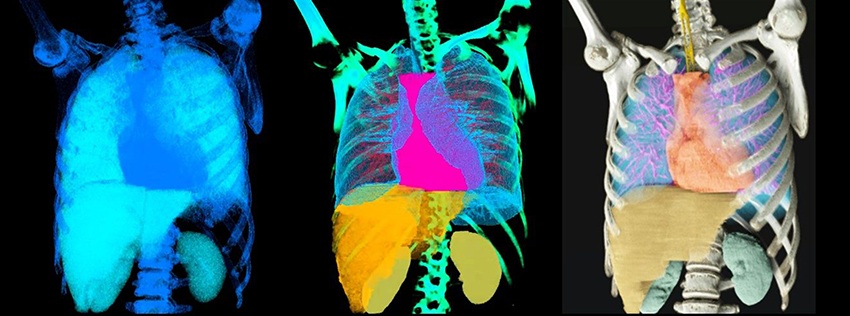
NVIDIA and the American College of Radiology are teaming up to enable thousands of radiologists nationwide to create and use AI for diagnostic radiology in their own facilities, using their own data, to meet their own clinical needs. The announcement follows a successful three-month pilot program by both parties, ACR is integrating the NVIDIA Clara AI toolkit into the newly announced ACR Data Science Institute ACR AI-LAB.
ACR AI-LAB Background
ACR AI-LAB is a free software platform that will be made available to more than 38,000 ACR members and other radiology professionals to build, share, locally adapt and validate AI algorithms, while also ensuring patient data stays protected at the local institution. GE Healthcare, Nuance, and NVIDIA, along with a vast network of healthcare startups and research institutes serve as industry partners to help power ACR AI-LAB.
NVIDIA Clara AI Toolkit Background
The NVIDIA Clara AI toolkit is a key part of the NVIDIA Clara developer platform, which is designed to enable software-defined medical instruments and intelligent workflows. A platform to create data and algorithm pipelines, NVIDIA Clara consists of libraries for data and image processing, AI model processing, and visualization. For AI, the toolkit includes libraries for data annotation, model training, model adaptation, model federation, and large-scale deployment.
Currently, NVIDIA Clara powers GE Healthcare’s Edison AI platform and the Nuance AI Marketplace, both of which are supporting the AI-LAB and are key solutions for the deployment of AI within the radiology workflow.
Democratized AI for Healthcare Pilot Results
An initial pilot with the Ohio State University (OSU) and the Massachusetts General Hospital and Brigham and Women’s Hospital’s Center for Clinical Data Science (CCDS) helped NVIDIA and ACR define the assets and pathways necessary to enable facilities to work together and with industry to refine AI algorithms without sharing potentially sensitive patient data. Bringing an AI model to the patient data, instead of patient data to the model, can help increase diversity in algorithm training, facilitate validation of the algorithms and enable radiologists to learn the steps needed to adapt algorithms to their institutions’ clinical needs.
Using the NVIDIA Clara AI toolkit, OSU was able to quickly import a pre-trained model developed by CCDS. This model was customized to local variables and successfully labeled OSU data for further testing and improvement of the algorithm, all of which took place behind their own firewall. It resulted in a highly accurate and enhanced cardiac computed tomography angiography model, and the shared approach reduced algorithm training, validation and testing times by days.
The architecture used in the pilot program, powered by the NVIDIA Clara AI toolkit, enables data aggregation, image annotation, image pre-processing and transformation, algorithm transfer and local computing for algorithm improvement, all of which are necessary to achieve the ultimate goal of the democratization of AI.
“This software will offer radiologists, without computer programming experience, the ability to build and improve AI algorithms without the need to share their data,” said Keith Dreyer, D.O., Ph.D., chief data science officer at Partners Healthcare and associate professor of radiology at Harvard Medical School. “Algorithms typically work best within the sites where they were trained, but those limited training sets are not always representative of the population at large. Training AI models on data from diverse sites helps ensure resiliency while reducing algorithm bias, resulting in improved inference across broader populations.”
ACR-AI LAB Planned Debut and Availability
The initial version of ACR AI-LAB will be shown at the 2019 ACR Annual Meeting in Washington, from May 18-22. Attendees will be able to explore and experiment with the AI tools necessary to modify and refine AI models. Soon after, ACR plans to provide online access and sample data from publicly available patient datasets.
